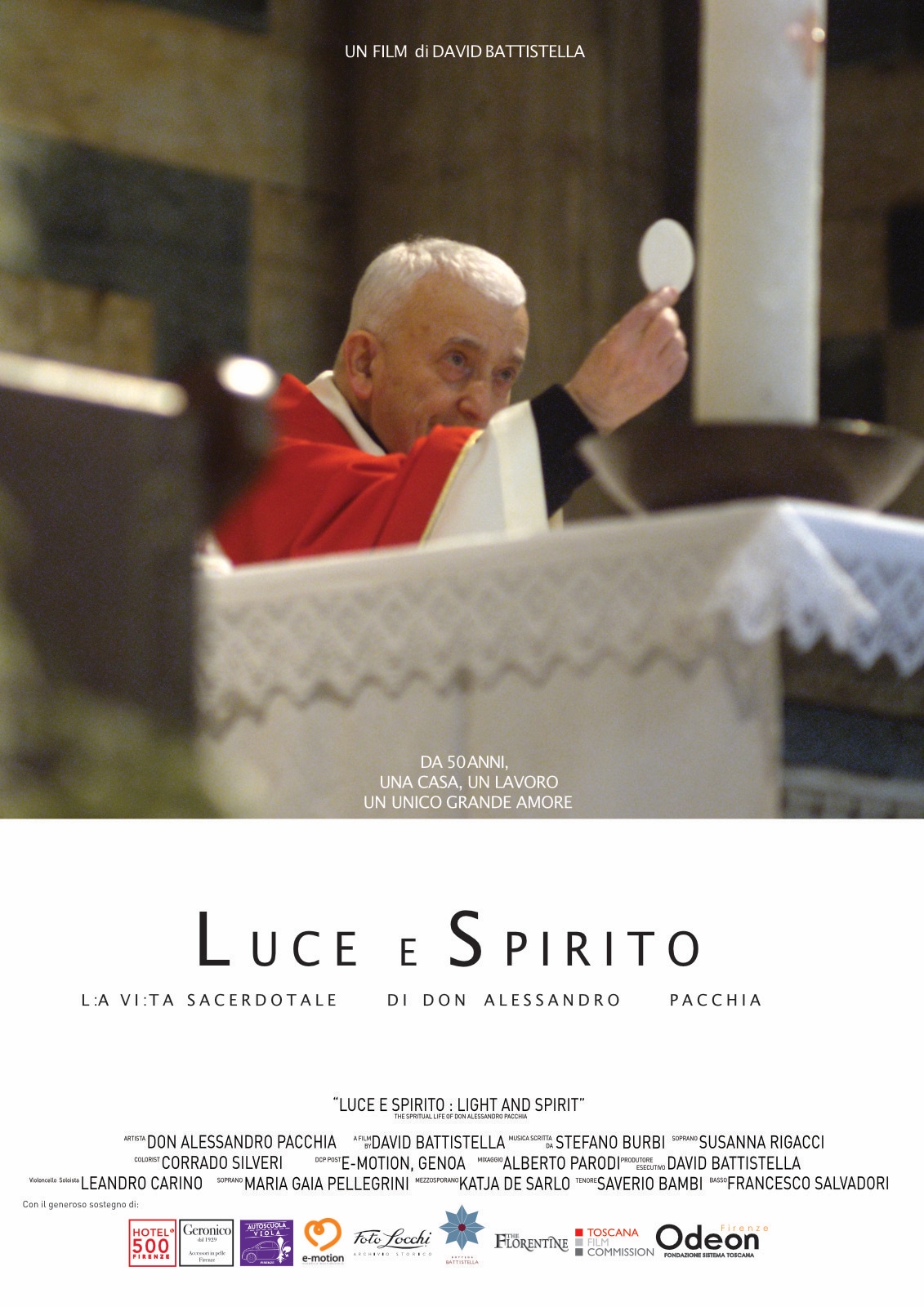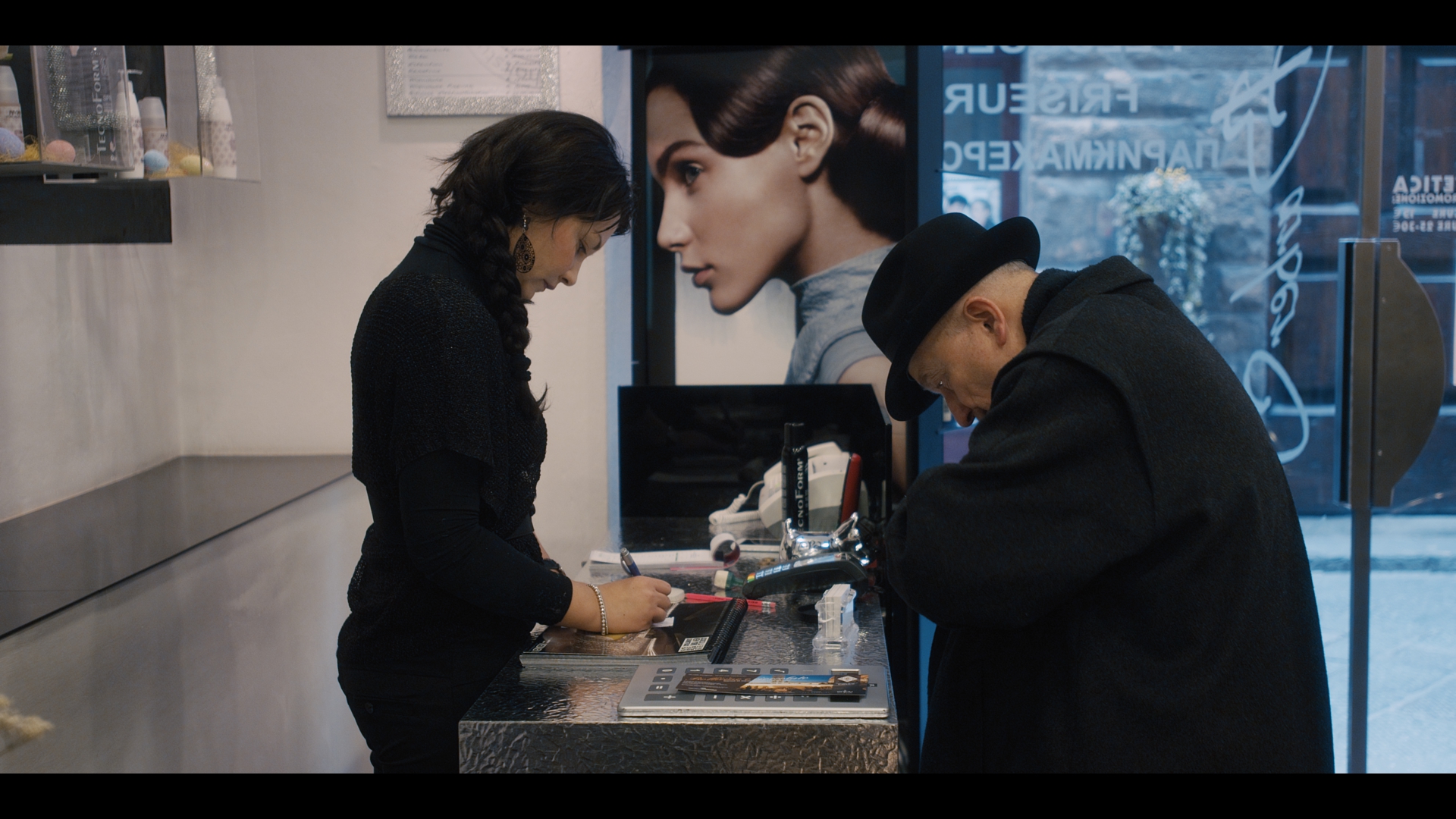
LIGHT & SPIRIT
The Spiritual Life of Don Alessandro Pacchia
DOCUMENTARY 72 minutes
Luce e Spirito explores the working life of Don Alessandro Pacchia, an 83 year old priest at the Basilica of Florence, made famous by Brunelleschi’s Cupola. The film traces his 47 years as a simple priest who’s work as Sacristan has never changed. !
The film was captured by filmmaker David Battistella over a period of 15 months with unprecedented access to Don Alessandro’s personal and working life. !
Don Alessandro has a unique job in a unique place, with a unique perspective and his career has helped form his worldly point of view. !
At age 80 he took up blogging to bring forward what has become his main mission; to announce his great love of Jesus. Three years ago he did not know how to turn on a computer, now he has over 300 Facebook friends and blogs and e-mails daily. He even tweets via his twitter account. !
He has overcome physical challenges in order to carry out his daily routine of celebrating mass in the famous St. John’s Baptistry, still a functioning church which dates back to medieval times. !
He has lived through historical events in Florence: the famous flood of 1966, political and social change and changes within the church and it’s hierarchy. He has welcomed people of all faiths and nationalities through the doors of the cathedral. !
From his third floor apartment in Piazza Duomo where he once lived with his parents and brother, he has literally watched the world pass by his front door. Now alone he works feverishly at his computer to share his experiences. !
Don Alessandro is opinionated but humble and carries a simple message of love.
Luce e Spirito explores the working life of Don Alessandro Pacchia, an 83 year old priest at the Basilica of Florence, made famous by Brunelleschi’s Cupola. The film traces his 47 years as a simple priest who’s work as Sacristan has never changed.
The film was captured by filmmaker David Battistella over a period of 15 months with unprecedented access to Don Alessandro’s personal and working life.
Don Alessandro has a unique job in a unique place, with a unique perspective and his career has helped form his worldly point of view.
At age 80 he took up blogging to bring forward what has become his main mission; to announce his great love of Jesus. Three years ago he did not know how to turn on a computer, now he has over 300 Facebook friends and blogs and e-mails daily. He even tweets via his twitter account.
He has overcome physical challenges in order to carry out his daily routine of celebrating mass in the famous St. John’s Baptistry, still a functioning church which dates back to medieval times.
He has lived through historical events in Florence: the famous flood of 1966, political and social change and changes within the church and it’s hierarchy. He has welcomed people of all faiths and nationalities through the doors of the cathedral.
From his third floor apartment in Piazza Duomo where he once lived with his parents and brother, he has literally watched the world pass by his front door. Now alone he works feverishly at his computer to share his experiences.
Don Alessandro is opinionated but humble and carries a simple message of love.
CAST

DON ALESSANDRO PACCHIA 7/6/1930 – 21/1/2019
CATHOLIC PRIEST – Florence Cathedral Sacristan of 50 years
Notes on the Creation of Light and Spirit.
2013 was declared the Year of Faith in the Catholic religion. This declaration
got me thinking; about faith, about love, about everything put before us. For me, living in a new country, a new city, refreshing my life and living forward, how could the question of the role faith plays in my life be ignored? !
I’m a baptised Catholic. I have had my struggles with the church, with faith. I’ve gone away and returned. I’ve been zen, I’ve practiced Kabbalah, sat in meditation for hours, lived in weeks of silence and I, like many have been one of those people searching for more, for something.
Somehow, living in the city of Florence and witnessing Catholicism the way it is lived in the country of the origins of the church, gave me an opportunity for a new perspective. I approached with the simplicity of a child and with a simple perspective. I wanted to enter into a relationship based far less on words and with a deeper understanding of deeds and actions. I wanted to witness faith in daily life.
Then I met Don Alessandro Pacchia at the Cathedral in Florence. I became interested in his journey of faith and his story as a working priest in the cathedral since 1966. Forty seven years in one place with the same job is a unique perspective.
My films seek to find peace in daily work. I look for the extraordinary in the ordinary. As we move at light speed toward the future, I feel that slowing down to reflect is equally important. The speed of a train changes how you look at the world compared to how it might look from an airplane at 35,000 feet.
I like to create a train journey with my films, leaving space and time for the viewer to reflect and contemplate how the the sight and sound is affecting them. My films take on this same tone. This is my voice, at my speed.
Of course anyone can take it as they wish, but I feel it is important to frame this so that people have an understanding that there is an overall viewpoint toward creating a body of work that is presented in this way. That view is to slow down, reflect and enter into the content of a film and pay special attention to how you react in the silences. This will reveal a lot about where you are in your journey.
Battistella!
Firenze 2014!
BACK TO HOME PAGE